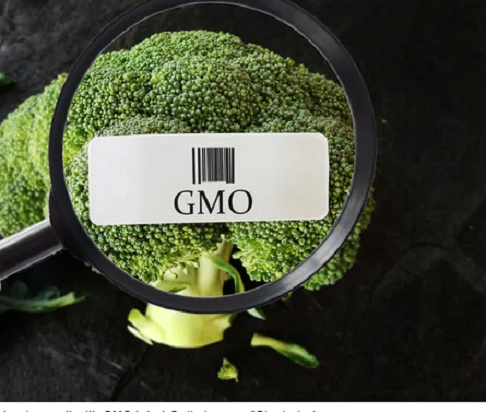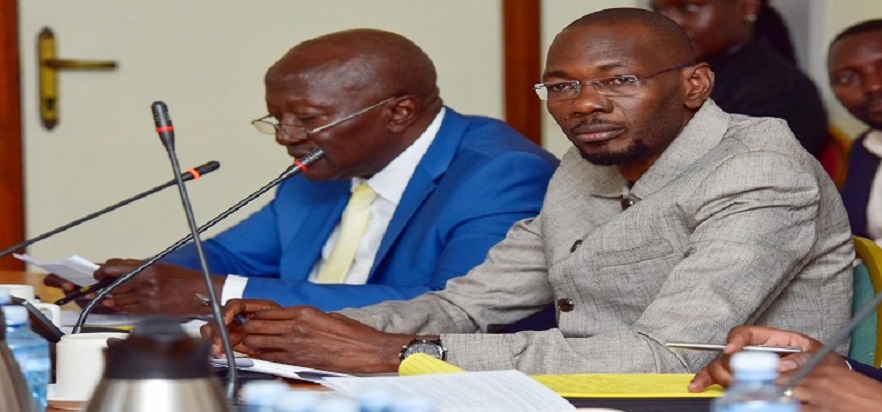Minister Rwamirama interacting with agri-food exhibitors at the conference
The Ministry of Agriculture, Animal Industry, and Fisheries has urged closer cooperation and coordination between different sectors if agricultural transformation and food security are to be achieved. State Minister for Animal Husbandry, Bright Rwamirama, says that the government is doing its best to ensure the transformation of the sector, but that this cannot be a one-man fight.
“Agri-food transformation is not a one-man show. Government, development partners and private sector must coordinate, innovate and invest to build inclusive, resilient systems that serve all Ugandans,” he told the Uganda Agri-Food Systems Investment and Financing Summit.
The event taking place under the theme “Catalysing Innovative Investments and Financing Partnerships to Transform Uganda’s Agri-Food Systems” is aimed at mobilising investment and partnerships to transform agriculture, improve food security, and support national development goals.
“Uganda is investing in SACCOs, irrigation & research to boost productivity and climate resilience,” he told the event that comes amidst voices of disappointment over government allocations to the sector despite listing it under the priority growth sectors in the Fourth National Development Plan (NDPIV).
“Our upcoming NDP IV (2025/26–2029/30) places Agri-food system transformation at the core of Uganda’s strategy for economic growth, poverty reduction, and sustainable development. But transformation needs more than policy, it needs financing”. In the national budget for 2025/2026, the government has allocated a total of 1.858 Trillion Shillings, which shows a reduction from the 2024/2025 allocation of 2.065 trillion, majorly targeting deepening agro-industrialisation.
According to the budget, key spending areas will be agricultural research; agricultural inputs including fertiliser; water for irrigation; extension services; agro-processing and value addition; post-harvest handling and storage facilities; inspection, surveillance, certification, enforcement of quality standards, and market access.
According to the ministry, Uganda’s agri-food systems are at a critical juncture, with a rapidly growing population of approximately 45.9 million people. This growth presents both opportunities and pressing challenges in addressing food security.
Uganda’s agriculture continues to be rain-fed, which means that harvest is determined by weather conditions, while investment in modern practices is limited by a lack of funds. “Affordable credit, climate-smart farming, and resilient infrastructure are non-negotiables,” the Minister said. The UN Food and Agriculture Organisation gave Uganda’s efforts at food security a nod of approval.
“Uganda has shown true leadership in transforming agri-food systems and building a food-secure future for Africa. FAO is proud to stand with Uganda on this journey,” said Yergalem Taages Beraki, FAO Representative to Uganda. Ages Kirabo, the Executive Director at Food Rights Alliance, challenged the government on the available frameworks that are supposed to help realise the food security vision.
“Every single coin, public and private, must align with this vision. We need a mutual accountability framework, where all actors are accountable for both resources and results. If we do not do this, we’re just walking in circles,” she said.
According to her, trying to implement food systems transformation without consistent planning and aligned investments is getting it wrong. “We need to align all global commitments into one common results framework. What are the hungry people expecting from food systems transformation? The unemployed? What does the Zero Hunger Initiative expect?” she poses, adding that everyone has expectations.
“We must translate this conversation into practical interventions, real actions, and measurable results”. The Conference has several sub-themes, including Investing and financing agri-food systems transformation; Advancing Uganda’s agri-food systems: Integrating rights, innovation, and investment for sustainable transformation; and Integrating the human right to adequate food approach to sustainable agri-food systems transformation opportunities and trade-offs for Uganda.
Others are: Uganda’s agri-food systems financial landscape and food systems financing; and Value chain analysis of Coffee, Cotton, Tea, Sugarcane, Oil Palm, and Banana in Uganda. Deliberations and agreed actions will be published in a joint partners’ report for the 2025 Uganda Agri-Food Systems Investment and Financing Conference.
-URN





